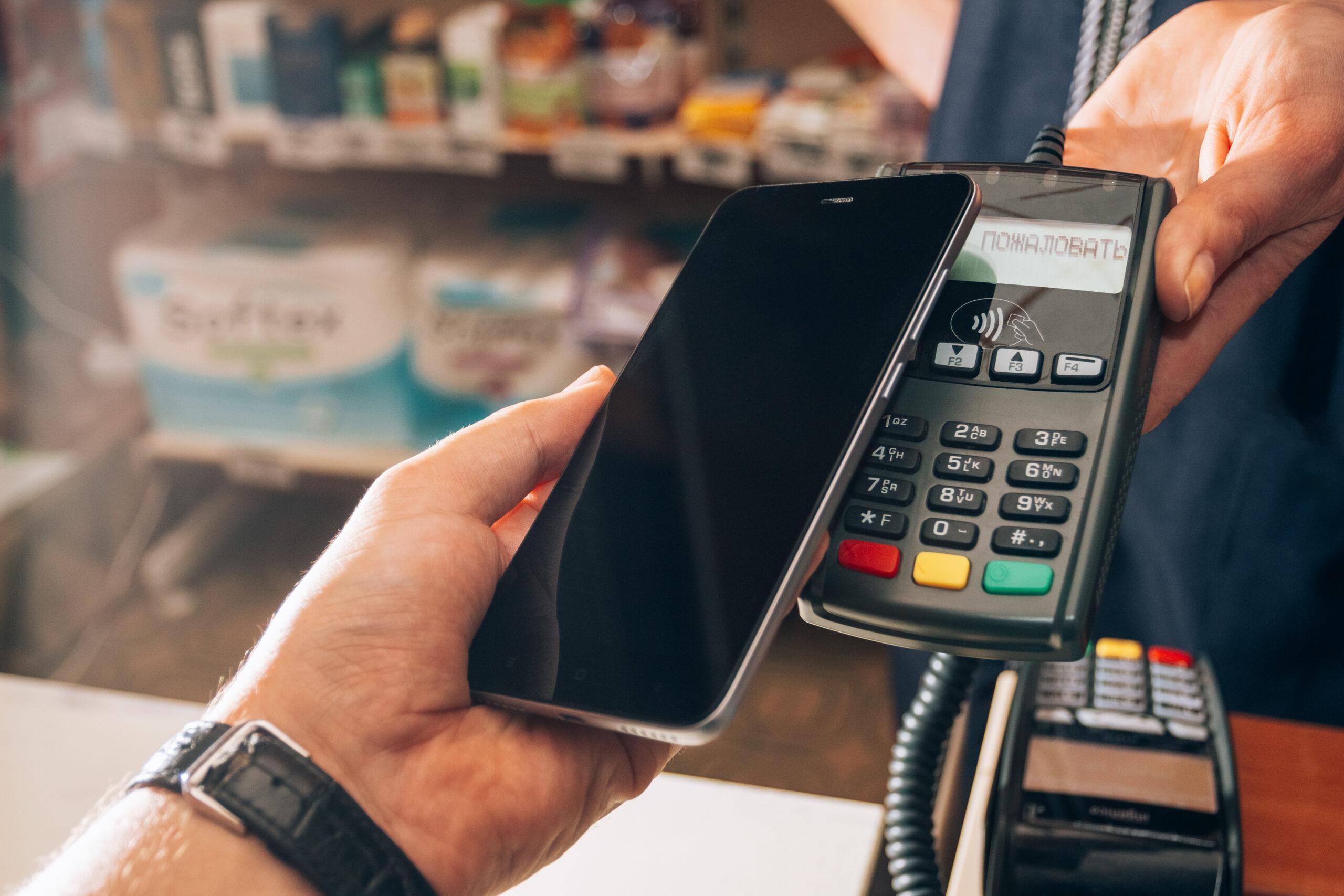MENU
Starting a Business
- Best Small Business Loans
- Best Business Internet Service
- Best Online Payroll Service
- Best Business Phone Systems
Our Top Picks
- OnPay Payroll Review
- ADP Payroll Review
- Ooma Office Review
- RingCentral Review
Our In-Depth Reviews
Finance
- Best Accounting Software
- Best Merchant Services Providers
- Best Credit Card Processors
- Best Mobile Credit Card Processors
Our Top Picks
- Clover Review
- Merchant One Review
- QuickBooks Online Review
- Xero Accounting Review
Our In-Depth Reviews
- Accounting
- Finances
- Financial Solutions
- Funding
Explore More
Human Resources
- Best Human Resources Outsourcing Services
- Best Time and Attendance Software
- Best PEO Services
- Best Business Employee Retirement Plans
Our Top Picks
- Bambee Review
- Rippling HR Software Review
- TriNet Review
- Gusto Payroll Review
Our In-Depth Reviews
- Employees
- HR Solutions
- Hiring
- Managing
Explore More
Marketing and Sales
- Best Text Message Marketing Services
- Best CRM Software
- Best Email Marketing Services
- Best Website Builders
Our Top Picks
- Textedly Review
- Salesforce Review
- EZ Texting Review
- Textline Review
Our In-Depth Reviews
Technology
- Best GPS Fleet Management Software
- Best POS Systems
- Best Employee Monitoring Software
- Best Document Management Software
Our Top Picks
- Verizon Connect Fleet GPS Review
- Zoom Review
- Samsara Review
- Zoho CRM Review
Our In-Depth Reviews
Business Basics
- 4 Simple Steps to Valuing Your Small Business
- How to Write a Business Growth Plan
- 12 Business Skills You Need to Master
- How to Start a One-Person Business
Our Top Picks
Marketing vs. Mobile Marketing: Where, When and How to Use Them

Table of Contents
Today’s consumers have their mobile phones and devices nearby constantly and engage with them frequently. Savvy marketers understand that reaching their target customers via mobile devices is a top priority. Short message service (SMS) marketing and mobile marketing are two ways to accomplish this.
Although SMS marketing and mobile marketing are viable tools, they have unique differences. We’ll explain how these customer engagement tactics differ so you can strategize your campaigns.
According to eMarketer, about 253.3 million United States adults use a mobile phone. Statista estimates average daily usage at four hours and 30 minutes. These numbers show that mobile device marketing strategies make sense.
SMS marketing
Here’s a rundown of SMS marketing and how you can use business texting effectively.
What is SMS marketing?
SMS marketing, frequently called text message marketing, is when a brand sends SMS or text messages directly to consumers with promotional content, such as special deals, product updates, customer loyalty program perks and marketing information.
Businesses use SMS to create permission-based marketing campaigns. In other words, customers opt-in to receive your marketing offers via SMS message. Customers can permit you to add them to your SMS campaign and database in several ways:
- Texting a designated keyword to a shortcode (usually a five-digit number)
- Opting in via a phone call
- Opting in via an online form
- Opting in while at your brick-and-mortar location
Opt-in email marketing is another type of permission-based marketing campaign. Email addresses typically are collected via online forms or when customers enter their email addresses to receive newsletters and other information.
What is SMS marketing used for?
SMS marketing is a great way to issue reminders, delivery notices, limited-time or exclusive offers and redeemable coupons to your customer base. SMS marketing is also an effective method for driving customer engagement through polls or survey-type messages.
What SMS marketing tools are available?
Some of the many SMS marketing tools available include the following:
- Twilio: Twilio includes SMS and Facebook Messenger marketing options, plus tools for traditional email marketing Read our Twilio Flex review to learn about the company’s overall digital engagement platform.
- Textedly: Textedly provides easy short code creation, list opt-in tools and text message scheduling. Read our Textedly review for a detailed look at the solution’s features.
- EZ Texting: EZ Texting includes keyword options and text-to-landline capabilities. Read our detailed EZ Texting review to learn more about this feature-packed text message marketing platform.
- Mobiniti: Mobiniti includes free unlimited support and integrates with many email and content marketing platforms.
- Avochato: Avochato includes market segmentation tools and integrates with many internal databases and communication platforms.
Read our reviews of the best text message marketing services to find a solution that easily integrates with your marketing programs and fits your budget.
Advantages of SMS marketing
SMS marketing has numerous advantages, including the following:
- SMS lets you market directly to your audience: SMS marketing lets you market to your target audience and build customer loyalty instantly.
- SMS provides personalization options: Additionally, many SMS marketing tools let you personalize messages, boosting your digital marketing return on investment. Personalized messages are more likely to capture recipients’ interest and improve response and conversion rates.
- SMS facilitates automated responses: Text message marketing often has built-in automated response functions. Depending on your subscribers’ actions, you can automatically send messages that trigger follow-up replies and actions from your software to further engage customers.
- SMS provides contact management: SMS marketing tools provide options for easy segmentation and contact database management.
SMS marketing tips
Consider the following tips for maximizing your SMS marketing efforts:
- SMS messaging should be clear: Be clear in communicating what your SMS marketing campaign is about, including what types of SMS messages your customers will receive, how often they will receive them and how recipients will benefit when they opt-in to receive messages.
- Make opting out of SMS messages easy: Give subscribers a chance to opt out of your notifications anytime by including relevant instructions in your text campaigns.
- Keep your SMS messages professional: Don’t text during irregular hours or use shorthand texts ― aim for a professional tone.
- Remind users about potential SMS data charges: Add a disclaimer in your initial text message about possibly incurring data and message charges if customers don’t have unlimited data plans.
Depending on your campaign practices, text message marketing can be annoying or brilliant. To ensure a good response, always get recipients’ permission, make unsubscribing easy and tie your messages to relevant events.
Mobile marketing
Here’s a rundown of mobile marketing and its business advantages.
What is mobile marketing?
Mobile marketing is the practice of marketing your business on mobile devices, including smartphones, tablets and smartwatches. Mobile marketing is a multichannel digital marketing strategy that utilizes content marketing tools like websites, social media, mobile apps and SMS/multimedia messaging service to send mobile ads to audiences.
Mobile marketing is a well-rounded digital marketing technique with several ad-formation options. Some of the most popular mobile marketing strategies include the following:
- Video ads: Thanks to digital technologies, your customers and prospects can watch videos on their mobile devices. With mobile video marketing, you can create video ads tailored to your target audience. Because many consumers find video ads entertaining and engaging, video can enhance your content marketing strategy.
- Mobile apps: Mobile app-based marketing, also known as in-app advertising, is a popular marketing strategy. For example, Facebook ads can enhance your overall Facebook marketing strategy.
- In-game mobile marketing: Mobile games can host your mobile ads. Ad formats include banner ads, pop-ups, full-page image ads and video ads that load between games.
- Location-based marketing: Location-based marketing lets you send ads to users’ mobile devices when they’re within a specific distance from your business or location. Fast-food restaurants and specialty stores use this strategy to promote brand awareness.
- Mobile search ads: Customers see mobile search ads after conducting Google searches on a specific topic. These ads often have extensions like click-to-call or maps to help users find your business.
Google Ads follows a pay-per-click strategy to place your content at the top of search results based on specific keywords.
What is mobile marketing used for?
Mobile marketing uses smartphones and other handheld devices to provide potential or existing customers with personalized and time- and location-based information about your business. Mobile marketing is not permission-based, so there’s no need to get prospects to sign up. It’s used to boost brand awareness, generate leads and increase sales instead of reaching out to existing customers.
What mobile marketing tools are available?
Some top mobile marketing tools include the following:
- Google Analytics: Google Analytics includes relevant metrics for mobile marketing campaigns, including traffic reports, keyword referrals, event tracking and attribution.
- AppsFlyer: AppsFlyer monitors app engagement, tracks app installation locations and tracks and improves mobile marketing campaigns. Visit the AppsFlyer website to learn more.
- ai: Data.ai ranks apps and keywords, estimates app usage and advertising and offers SDK insights. Visit the Data.ai website to learn more.
- Flurry: Flurry provides tools for sales funnel analysis, user segmentation and event tracking. Visit the Flurry website to learn more.
- Braze: Braze offers live customer views, customer journey building and real-time mobile marketing campaign optimization. Visit the Braze website to learn more.
Advantages of mobile marketing
Like SMS marketing, mobile marketing has several advantages, including the following:
- Mobile marketing doesn’t require recipient opt-in: Since recipients don’t have to opt in, you have a broader potential audience and can expose your brand to more people.
- Mobile marketing can deliver qualified audiences: Some mobile marketing methods deliver highly qualified audiences, so they’re effective at generating business. For example, if you’ve developed a mobile app for your business and someone downloads it, they’re interested in your brand and are primed to buy. If you use in-app advertising with an app whose target audience is ideal, your chances of converting are higher.
- Mobile marketing enables location-based marketing: With location-based marketing, the individual is near your business, making it easy for them to stop in with the proper motivation. Since many people conduct product searches on their phones in-store, mobile ads can reveal new products or promotions that generate sales.
Mobile marketing tips
Consider the following tips for maximizing your mobile marketing efforts:
- Optimize ads for mobile: Optimizing for a mobile experience means formatting your ad’s message and design for a mobile platform. With small screens, every space and word should be used wisely.
- Ensure your website is responsive to mobile SEO: Mobile-friendly websites are crucial. Additionally, your business’s homepage must be responsive to mobile SEO so users can find you when they conduct a mobile search.
- Know your audience when conducting mobile marketing campaigns: Ensure your mobile marketing efforts are targeted to the right platforms. For example, in-game ads will be more effective at reaching gamers than sponsored posts on social networks like Twitter, Instagram or Facebook.
Should you use SMS marketing or mobile marketing?
When considering SMS or mobile marketing, keep your goal in mind:
- SMS marketing: SMS marketing is best for building relationships with current customers and committed prospects. Personalizing SMS messages is crucial, helping you sell specific items based on someone’s purchase history. For example, someone who bought a crib is probably a good prospect to receive a promotion on high chairs. But while texting can be an effective personal interaction, it should be used in moderation. If a recipient feels like you’re spamming them with promotional material, they’ll opt out quickly.
- Mobile marketing: Mobile marketing is best for expanding your customer base and moving prospects through the sales funnel. There’s no limit on how much mobile marketing you can do (other than your budget) because it isn’t permission-based. Use mobile search, social media and in-app and in-game ads to build brand awareness and generate leads; use your mobile app and location-based marketing to drive sales, loyalty and engagement.
All businesses should consider incorporating both top-of-funnel activities into their overall marketing plan to boost sales, provide customer care and increase loyalty.












